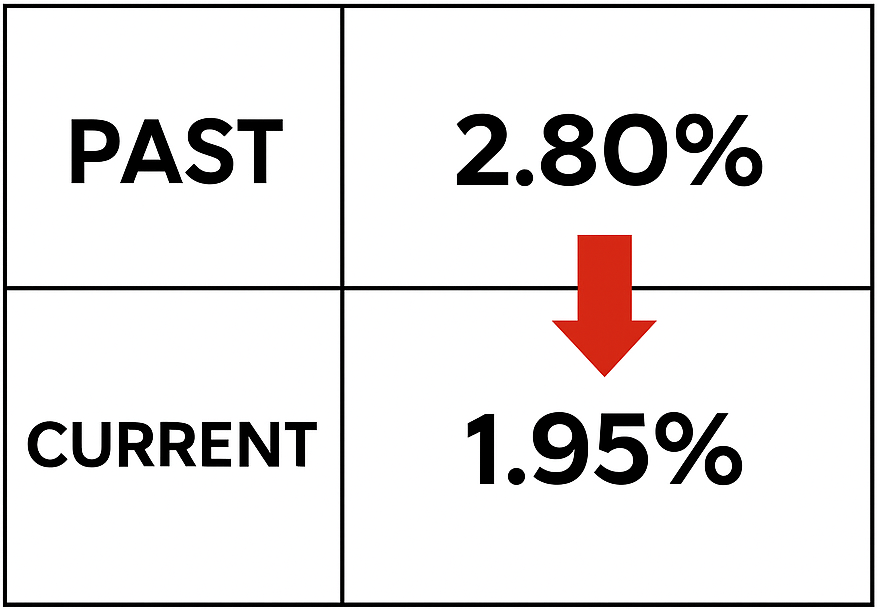Thinking of buying a commercial property in Singapore — maybe a little office, a shop unit, or a space to run your own thing? Then you’ve probably asked yourself this:
Can I use my CPF to pay for it?
It’s a super common question. And the honest answer? Nope, CPF can’t be used to buy commercial property. Only residential ones like HDB flats and private homes qualify.
But hey — don’t give up just yet! In this guide, I’ll walk you through:
- Why CPF isn’t allowed (and what the rules say)
- When there might be exceptions
- What other options you actually have
If you’re planning to buy a commercial space — or just curious how CPF fits into the picture — this article’s for you. Let’s break it down, simply and clearly
CPF Usage Rules for Property in Singapore
Before diving into commercial properties, it’s important to understand how CPF works when it comes to buying property in Singapore. Your CPF Ordinary Account (OA) is a powerful tool — but it comes with clear limitations.
As of 2025, CPF usage rules remain strict: it can be used for residential property, but not for commercial or industrial property. Many buyers wrongly assume CPF works across all types of real estate — and that’s where costly planning mistakes happen.
Let’s break it down clearly so you can plan with confidence.
What CPF Can Be Used For in 2025
In Singapore, you can use your CPF OA savings for:
- Buying HDB flats or resale units
- Purchasing private condos or landed homes
- Paying for stamp duty, legal fees, and mortgage instalments on eligible residential property
For example, if you’re purchasing an HDB flat, you can explore your financing options through this HDB home loan guide.
If you’re looking at private homes, here’s a resource to compare private property loan options available from banks.
CPF Usage for Property Types in Singapore (2025)
| Property Type | CPF Usage Allowed? | Notes |
|---|---|---|
| HDB Flat (New or Resale) | ✅ Yes | Must be for owner-occupation |
| Executive Condominium (EC) | ✅ Yes | Only after Minimum Occupation Period (MOP) |
| Private Condo or Landed Property | ✅ Yes | Subject to housing loan interest rate and withdrawal limits |
| Commercial Property | ❌ No | CPF not allowed for any part of purchase |
| Industrial/Warehouse Units | ❌ No | Same rule as commercial — CPF not applicable |
| Mixed-Use with Residential Zoning | ⚠️ Maybe | Only if URA classifies it as residential |
Just because a property looks residential (like a SOHO or shophouse), doesn’t mean CPF is automatically allowed. Always check the zoning status and CPF Board criteria before committing.
CPF Restrictions for Commercial & Industrial Property
Here’s the hard truth: CPF cannot be used to buy commercial property in Singapore — not for the downpayment, not for the loan, and not for stamp duty or legal fees.
If you’re planning to buy a shop, office unit, or industrial space, you’ll need to fully finance it with cash and a bank loan. To explore your financing choices, you can check current commercial property loan interest rate Singapore options here.
Pro tip: Use tools like this mortgage loan repayment calculator to estimate your monthly instalments and cash flow before you commit.
CPF Rules for Properties Owned Under Company Names
Buying commercial property under a business entity? CPF is still not allowed.
Whether it’s a private limited company or an LLP, CPF can only be used for your personal housing — not for any asset owned by a company, even if you’re the sole shareholder.
If you’re financing through a business, it’s worth exploring how different banks compare. You can reach out to a Singapore mortgage broker to help you find the best commercial loan package.
🧩 Quick comparison:
- Buying a condo to live in? CPF allowed.
- Buying a shophouse under your company? CPF not allowed.
- Buying a dual-use SOHO unit personally (and URA-approved for residential)? CPF might be allowed.
Common Misconceptions About CPF and Commercial Property
Many first-time commercial buyers are caught off guard by CPF restrictions — and it’s easy to see why. You hear stories from friends or online forums, and suddenly, you’re not sure what’s allowed and what’s not.
So let’s clear the air.
Here are the most common CPF myths we see (especially in 2025), and the truth behind them — straight up, no fluff.
Can I Use CPF for Downpayment Only?
This one comes up a lot — people assume that even if CPF can’t cover the full purchase, maybe it can at least be used for the downpayment on a commercial property.
Unfortunately, the answer is no. CPF savings cannot be used for any part of a commercial or industrial property purchase — not the downpayment, not the loan repayments, not even the legal fees or buyer’s stamp duty.
It doesn’t matter if the unit is small, for your own use, or has low value. CPF is strictly reserved for residential property financing, and the rule hasn’t changed in 2025.
Friendly reminder: If you’re planning your financing, tools like this mortgage loan repayment calculator can help you see how much cash you’ll actually need upfront — CPF excluded.
Can I Use CPF If It’s a SOHO or Mixed-Use Property?
Ah yes, the “but my property has a residential portion” argument. It sounds reasonable — and in some very specific cases, CPF may be allowed.
Here’s the deal: if you’re buying a SOHO (Small Office Home Office) or mixed-use property, CPF can only be used if URA officially designates it as residential and the CPF Board accepts it.
So unless the URA zoning and title deed clearly show it as a residential unit, CPF is still off-limits. Don’t assume just because it has a bedroom and a pantry, CPF usage is approved.
✅ If you’re considering a residential property instead — like a condo loan or private property loan — CPF is generally allowed, and you’ll have more flexibility.
⚠️ Always confirm CPF usage before signing the Option to Purchase (OTP). It could make or break your financing plan.
What If I Buy It for My Own Use, Not Investment?
It’s a fair question. You’re not buying the space to rent it out — maybe you’re starting a small business, using it as your personal workspace, or even living above your shop. Surely CPF is okay… right?
Sadly, still no.
CPF rules are based on property classification, not personal intent. Even if you live in a commercial space, if it’s zoned as commercial or industrial, CPF use is still prohibited.
For example, if you’re considering buying a commercial space for your own business operations, you’ll need to finance it entirely with cash or a business property mortgage. You can explore your options here: Singapore commercial property loan.
Real talk: CPF is designed to help Singaporeans with retirement and housing. And while your business is personal to you, it doesn’t count as a residential housing need in CPF’s eyes.
CPF Alternatives When Buying Commercial Property
So now that we know CPF’s off the table… what can you actually use to fund a commercial property purchase in Singapore?
The short answer: cold hard cash and a bank loan.
It may sound a little daunting, but with the right prep and planning, it’s totally doable — and we’ll show you how to think about your options clearly.
Cash and Bank Loans: Your Only Options
When CPF isn’t an option, your financing plan needs to be built around cash and a commercial property loan.
In most cases, banks in Singapore will offer up to 80% Loan-to-Value (LTV) for commercial property, meaning you’ll need to cover at least 20% in cash — plus all other fees and taxes. For larger loans or higher-risk profiles, banks may lower the LTV or shorten the loan tenure.
Want to get a sense of how much monthly repayments might look like? Try out this mortgage loan repayment calculator to estimate what your numbers could be based on interest rate and tenure.
Interest rates for commercial loans tend to be higher than residential ones. Always compare your Singapore commercial property loan options carefully — different banks may offer fixed or floating rate packages depending on the loan amount and usage.
Why CPF Cannot Be Used for Stamp Duty, Legal Fees or Renovation
This catches many buyers off guard. Even if CPF isn’t allowed for the purchase itself, some assume it can still be used for side costs like Buyer’s Stamp Duty (BSD), legal fees, or even light renovation works.
But CPF rules are clear:
If the property is commercial, CPF funds cannot be used for any part of the transaction.
This includes:
- BSD (Buyer’s Stamp Duty)
- Legal and conveyancing fees
- Renovation or fit-out works
- Valuation or admin charges
To budget properly, check out our handy BSD calculator to see how much stamp duty you’ll need to fork out in cash.
Quick reminder: Even for residential homes, CPF can only be used up to certain limits for these costs. But for commercial property? CPF is fully excluded, no matter how minor the expense.
Should You Transfer CPF Funds to Cash?
If you’ve built up a healthy CPF OA balance, it’s tempting to wonder:
“Can I just withdraw my CPF and use it as cash instead?”
We wish it were that simple — but unfortunately, CPF savings are locked in for approved purposes like housing, retirement, and healthcare. You cannot voluntarily withdraw your CPF OA funds to convert them into cash for commercial property purchases, even if you have no outstanding housing loan.
So what can you do?
✅ Consider refinancing your existing residential mortgage to free up cash
✅ Plan early and start setting aside a separate property investment fund
✅ Speak to a Singapore mortgage broker to explore how your existing CPF usage may affect future loan approvals
CPF is a safety net, not a piggy bank — and unfortunately, it’s not designed to help with commercial ventures. But with a solid financing plan, CPF isn’t the only path to property ownership.
Exceptions and Special Scenarios in 2025
You’ve probably heard stories from someone who used CPF for a shop unit… or a friend who swears they used CPF for a SOHO space.
So what gives?
Well — there are a few grey areas where CPF usage might be allowed. But they’re the exception, not the rule. In this section, we’ll break down the lesser-known CPF scenarios that sometimes confuse buyers in 2025.
CPF Use for Residential-Approved SOHO or Dual-Zoned Units
Small Office Home Office (SOHO) units and some shophouses blur the line between residential and commercial. That’s where things get tricky.
CPF can only be used if:
- The unit is zoned residential by URA
- It’s approved for full residential use (not partial)
- CPF Board confirms eligibility in writing
If any part of the property is considered commercial — even a ground floor shop space — CPF cannot be used at all.
So, if you’re eyeing a mixed-use unit, be sure to get zoning confirmation before assuming CPF is allowed.
🧠 Pro tip: Ask the seller or agent for the URA zoning certificate. Or work with a Singapore mortgage broker who can verify CPF eligibility before you commit.
Buying Over a Commercial Property Previously Used with CPF
This is a tricky one — and a common misconception.
Some buyers think that if a previous owner used CPF for the property, they can too. But CPF usage depends entirely on the current zoning and CPF rules at the time of your purchase — not the past.
There are rare legacy cases (e.g. pre-1990s SOHOs) where CPF usage was once allowed, but you cannot “inherit” CPF eligibility from the previous owner.
✅ Always check CPF rules as of your transaction date — not what applied 10 or 20 years ago.If you’re unsure whether the unit you’re buying qualifies today, it’s safest to consult CPF directly or loop in a mortgage consultant for clarification.
CPF Use for Business Loans or Property-Backed Investments
This one’s a hard no.
CPF cannot be used:
- To fund business capital
- As security for a business loan
- To invest in REITs or commercial real estate
- Or to back any property-linked financial product involving commercial assets
Even through the CPF Investment Scheme (CPFIS), you’re limited to approved unit trusts, bonds, or gold — but not physical property investments.
If you’re looking to fund a commercial property through a business loan, you’ll need to explore commercial property loan options instead.
💬 Bottom line: CPF is strictly for your personal housing and retirement needs. It’s not meant for business use — no matter how “strategic” the investment might seem.
FAQs — CPF and Commercial Property (Singapore 2025)
Still got questions? You’re not alone. These are some of the most common CPF-related queries we hear from clients and readers — especially when it comes to “blur line” properties or unique personal situations.
Let’s clear things up.
Can I Use CPF for Shophouse with Residential Component?
Maybe.
If the residential portion of the shophouse is:
- Officially zoned as residential by URA, and
- Clearly separated from the commercial section, and
- Approved by CPF Board for housing use
Then CPF might be allowed — but only for the residential part.
You can’t use CPF to pay for the commercial space (e.g. shop on the ground floor), even if it’s part of the same property.
💡 Quick advice: Always get URA zoning confirmation and check with CPF directly before assuming anything. Or better — let a mortgage advisor help you verify it upfront.
Can I Use My CPF to Help Someone Else Buy?
This one’s straightforward: No.
CPF savings can only be used to purchase a property you’re legally listed on — either as an owner or co-owner. You can’t use your CPF:
- To help your parents or children buy their commercial space
- To support your partner’s business property
- Or as a “loan” to someone else
CPF is strictly tied to your own housing and retirement needs. Even joint ownership doesn’t count if the property is non-residential.
💬 Real talk: If you want to help someone with their purchase, it has to come from your own cash savings — not CPF.
Can I Use CPF to Buy an Office for My Own Business?
We get this a lot — especially from self-employed folks and SME owners.
Sadly, the answer is still no.
CPF use is based on the zoning of the property, not your intent. Even if you’re buying an office space to use as your personal business HQ, it doesn’t qualify as residential — so CPF usage is not allowed.
Instead, you’ll need to fully finance the purchase through:
- Cash, and
- A commercial property loan in Singapore
🧠 Tip for entrepreneurs: Plan your business expansion with these rules in mind. CPF is great for housing, but it won’t support your commercial property dream.
Summary: CPF Rules for Commercial Property at a Glance
Alright, we’ve covered quite a bit — from what CPF can’t do, to those tricky SOHO exceptions, and common misconceptions. If your head’s spinning a little, don’t worry. This section wraps it all up neatly so you can walk away with the key facts in one place.
Let’s break it down visually.
Table of CPF Eligibility by Property Type
Here’s a simple table to help you quickly check which property types allow CPF usage — and which don’t.
Can You Use CPF for These Property Types? (Singapore 2025)
| Property Type | CPF Usage Allowed? | Notes |
|---|---|---|
| HDB Flat (New or Resale) | ✅ Yes | For owner-occupation only. |
| Executive Condominium (EC) | ✅ Yes | CPF allowed only after MOP. |
| Private Condominium | ✅ Yes | Within private property loan guidelines and limits. |
| Landed Property | ✅ Yes | Subject to withdrawal limits. |
| Commercial Property | ❌ No | CPF strictly not allowed — use commercial property loan instead. |
| Industrial/Warehouse | ❌ No | No CPF usage, even if it’s for your own business. |
| Mixed-Use (e.g. Shophouse) | ⚠️ Conditional | CPF allowed only if URA-zoned as residential. |
Quick note: CPF eligibility can change if zoning status is reclassified — so always check the latest URA and CPF Board rules.
Residential vs Commercial CPF Comparison
Need a side-by-side comparison? Here’s how CPF rules apply depending on whether you’re buying residential or commercial property.
CPF Use – Residential vs Commercial Property (2025)
| Usage Area | Residential Property | Commercial Property |
|---|---|---|
| CPF for Downpayment | ✅ Yes | ❌ No |
| CPF for Monthly Instalments | ✅ Yes | ❌ No |
| CPF for Stamp Duty & Legal Fees | ✅ Yes (within limits) | ❌ No |
| CPF for Renovation Works | ❌ No | ❌ No |
| CPF for Investment Purposes | ❌ Limited (CPFIS only) | ❌ No |
Tip: Don’t confuse use for living with property type. CPF cares about zoning — not how you plan to use the space
Key Takeaways for Buyers in 2025
Let’s recap what matters most:
- CPF cannot be used for commercial, industrial, or business-use property — even partially.
- If you’re buying residential property, CPF can support your loan, stamp duty, and more — but always check the limits.
- CPF may be allowed for mixed-use or SOHO units, but only if URA classifies them strictly as residential.
If you’re planning to buy a commercial unit, you’ll need to rely on cash and a bank loan. Use this mortgage loan repayment calculator to see what your monthly commitment could look like — or reach out to a Singapore mortgage broker to help you plan your next step.
Bottom line: CPF is for your home, not your hustle. But with the right strategy, you can still invest in commercial property confidently — just with the right tools.
Final Thoughts — What This Means for CPF Users in 2025
If you’ve made it this far, you probably realise by now that CPF just isn’t built for commercial property. And while that might feel a bit restrictive at first, it doesn’t mean your property goals are out of reach.
In fact, many buyers in Singapore — especially business owners and investors — successfully finance commercial units without touching their CPF at all. It just takes a little more planning (and a few less assumptions).
Why CPF Limitations Shouldn’t Stop Your Property Plans
Yes, CPF is convenient. But truth be told, it’s not your only tool — especially when it comes to commercial property.
Plenty of investors and small business owners buy offices, shop units, and even warehouses without CPF. The key is to approach the deal differently: with the right cash flow, bank financing, and loan structure in place.
Real talk: CPF is designed to protect your future housing and retirement needs — not your business goals. So don’t be discouraged. If commercial property fits your bigger picture, go for it — just plan smart.
Planning Your Financing Without CPF
When CPF isn’t part of your financing plan, your strategy has to be sharper — but that doesn’t mean it’s complicated.
Here’s what to focus on:
- Know your cash-on-hand for downpayment and fees
- Compare commercial property loan options with different banks
- Use tools like our mortgage loan repayment calculator to map out monthly instalments
- Consider refinancing or using equity from other properties you own
A little homework upfront can save you from costly surprises later.
When to Speak to a Mortgage Specialist
If you’re not sure where to start — or just want someone to help you run the numbers — that’s where a mortgage advisor can make a big difference.
A good Singapore mortgage broker can:
- Explain loan packages across banks
- Help you compare rates and terms side by side
- Flag hidden costs or restrictions (especially for mixed-use or SOHO units)
- Recommend the best strategy based on your budget and goals
✨ Bonus: Many brokers don’t charge you a fee — the bank pays them, not you. So there’s really no downside to having one in your corner.
Final word? CPF isn’t the path for commercial property — but there is still a path. And with the right info (like this guide 😉), you’re already halfway there.
Conclusion: CPF and Commercial Property — Know the Rules, Plan with Confidence
To sum it all up: you can’t use CPF to buy commercial property in Singapore, no matter how you slice it — not for the downpayment, not for the loan, and not even for stamp duty. CPF is strictly reserved for residential purposes, and the rules are clear.
But that doesn’t mean you’re stuck.
With proper planning, a strong financing strategy, and the help of a mortgage specialist who understands the commercial landscape, you can still move forward with your investment goals — CPF or not.
Commercial property can be a smart move in the long run. Just be sure you’re going in with both eyes open, your cash flow ready, and your bank loan sorted. If you ever feel unsure, get advice early — it could save you thousands.
Thanks for reading, and if this helped, feel free to share it with a fellow property-hunting friend who’s still wondering if CPF can cover their shophouse dreams.














